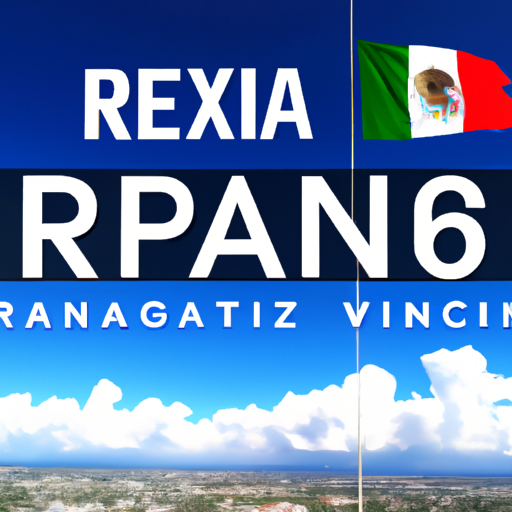
Benefits of Mexico’s FAA Rating Upgrade to Category 1
Mexico’s FAA Rating Upgraded to Category 1, Signifying Significant Implications
Mexico’s aviation industry has recently achieved a major milestone as the Federal Aviation Administration (FAA) upgraded its rating to Category 1. This upgrade signifies that Mexico now complies with international safety standards set by the International Civil Aviation Organization (ICAO). The implications of this upgrade are significant and will bring numerous benefits to Mexico’s aviation sector.
First and foremost, the upgrade to Category 1 will enhance Mexico’s reputation as a safe and reliable destination for air travel. This will undoubtedly boost tourism and attract more international visitors to the country. Travelers can now have peace of mind knowing that Mexico’s aviation industry meets the highest safety standards, ensuring a smooth and secure travel experience.
Furthermore, the upgrade will open up new opportunities for Mexican airlines to expand their operations globally. With the Category 1 rating, Mexican carriers can now establish codeshare agreements with U.S. airlines, allowing them to offer more destinations and seamless connections for passengers. This will not only increase convenience for travelers but also stimulate economic growth by promoting trade and tourism between Mexico and the United States.
In addition, the Category 1 rating will encourage foreign airlines to increase their presence in Mexico. International carriers will now have more confidence in partnering with Mexican airlines and expanding their routes to the country. This will result in increased competition, leading to more options for travelers and potentially lower airfares. The upgraded rating will also attract foreign investment in Mexico’s aviation industry, further boosting its growth and development.
Another significant benefit of the Category 1 upgrade is the potential for Mexico to become a regional aviation hub. With its strategic location between North and South America, Mexico can serve as a connecting point for flights between the two continents. This will not only benefit Mexican airlines but also attract transit passengers, boosting the country’s economy and positioning it as a key player in the global aviation market.
Moreover, the Category 1 rating will have a positive impact on Mexico’s domestic aviation market. It will encourage domestic carriers to improve their safety standards and enhance their operations to meet international requirements. This will result in a safer and more efficient domestic air travel experience for Mexican citizens, further promoting tourism within the country.
Lastly, the upgrade to Category 1 will strengthen Mexico’s collaboration with international aviation authorities. As a member of the ICAO, Mexico will have a greater voice in shaping global aviation regulations and standards. This will allow the country to actively contribute to the development of the industry and ensure that its interests are represented on the international stage.
In conclusion, Mexico’s FAA rating upgrade to Category 1 brings significant implications for the country’s aviation sector. The benefits are far-reaching, from boosting tourism and attracting foreign investment to expanding global connectivity and improving domestic air travel. This achievement not only enhances Mexico’s reputation as a safe and reliable destination but also positions it as a key player in the global aviation market. With the Category 1 rating, Mexico is poised to take its aviation industry to new heights.
Implications for Mexico’s Aviation Industry after FAA Rating Upgrade

Mexico’s FAA Rating Upgraded to Category 1, Signifying Significant Implications
Mexico’s aviation industry has recently received a major boost as the Federal Aviation Administration (FAA) upgraded the country’s rating to Category 1. This upgrade signifies significant implications for Mexico’s aviation industry, opening up new opportunities and paving the way for increased air travel and economic growth.
The FAA’s Category 1 rating is a crucial milestone for any country’s aviation industry. It indicates that the country’s civil aviation authority meets the International Civil Aviation Organization’s (ICAO) safety standards. This upgrade is a testament to Mexico’s commitment to enhancing safety measures and improving its aviation infrastructure.
One of the most immediate implications of this upgrade is the potential for increased air travel between Mexico and the United States. With the Category 1 rating, Mexican airlines can now establish new routes and expand their operations to the US. This will not only benefit the airlines but also provide more options for travelers, fostering greater connectivity and promoting tourism and business exchanges between the two countries.
Furthermore, the Category 1 rating will likely attract more international airlines to operate in Mexico. Airlines from around the world will now have greater confidence in Mexico’s aviation safety standards, making it an attractive destination for expansion. This influx of international airlines will not only increase competition but also provide passengers with more choices and potentially lower airfares.
The upgrade also has significant implications for Mexico’s domestic aviation industry. With improved safety standards, more Mexicans will feel confident in choosing air travel as their preferred mode of transportation. This increased demand for air travel within the country will drive growth in the domestic aviation sector, leading to the creation of more jobs and boosting the overall economy.
Moreover, the Category 1 rating will likely encourage investment in Mexico’s aviation infrastructure. With the potential for increased air traffic, airports will need to expand and modernize their facilities to accommodate the growing demand. This investment will not only benefit the aviation industry but also have a positive ripple effect on other sectors such as construction and tourism.
In addition to the economic implications, the Category 1 rating also highlights Mexico’s commitment to safety and regulatory compliance. It demonstrates that the country has implemented robust safety measures and is dedicated to ensuring the well-being of passengers and crew. This recognition will enhance Mexico’s reputation as a safe and reliable destination for air travel, further boosting tourism and business opportunities.
However, it is important to note that maintaining the Category 1 rating requires ongoing efforts and continuous improvement. Mexico’s civil aviation authority must remain vigilant in upholding safety standards and addressing any potential issues promptly. Regular audits and inspections will be necessary to ensure that the country continues to meet the FAA’s stringent requirements.
In conclusion, Mexico’s upgraded FAA rating to Category 1 signifies significant implications for the country’s aviation industry. It opens up new opportunities for increased air travel, fosters economic growth, attracts international airlines, and enhances Mexico’s reputation as a safe destination. This upgrade is a testament to Mexico’s commitment to safety and regulatory compliance, and it is a positive step towards a thriving and prosperous aviation sector.
Potential Economic Impact of Mexico’s FAA Rating Upgrade to Category 1
Mexico’s FAA Rating Upgraded to Category 1, Signifying Significant Implications
Mexico’s aviation industry has received a major boost as the Federal Aviation Administration (FAA) recently upgraded the country’s rating to Category 1. This upgrade signifies that Mexico now complies with international safety standards, allowing Mexican airlines to expand their operations and potentially attract more international carriers to the country. The implications of this upgrade are significant, particularly in terms of the potential economic impact it could have on Mexico.
One of the most immediate effects of this upgrade is the increased confidence it instills in travelers. With the Category 1 rating, passengers can feel assured that Mexican airlines meet the highest safety standards set by the FAA. This will likely lead to a surge in tourism, as more people will be willing to visit Mexico and explore its rich cultural heritage, stunning landscapes, and vibrant cities. The tourism industry, which is a major contributor to Mexico’s economy, is expected to experience a significant boost as a result.
Furthermore, the upgrade to Category 1 opens up new opportunities for Mexican airlines to expand their routes and increase their market share. With the improved safety rating, Mexican carriers can now establish codeshare agreements with international airlines, allowing them to offer more destinations and seamless connections to travelers. This will not only benefit the airlines themselves but also enhance Mexico’s connectivity with the rest of the world, making it a more attractive destination for both business and leisure travelers.
In addition to the direct impact on the aviation industry, the Category 1 rating upgrade also has broader economic implications for Mexico. As more tourists flock to the country, there will be a surge in demand for various goods and services, ranging from accommodation and transportation to food and entertainment. This increased demand will create new job opportunities and stimulate economic growth in sectors that are closely linked to tourism.
Moreover, the upgrade could also attract foreign investors to Mexico’s aviation industry. With the improved safety rating, international carriers may be more inclined to establish partnerships or invest in Mexican airlines, recognizing the potential for growth and profitability. This influx of foreign investment could lead to the modernization of Mexico’s aviation infrastructure, further enhancing its competitiveness in the global market.
It is worth noting that the upgrade to Category 1 did not happen overnight. It is the result of years of hard work and collaboration between Mexican authorities and the FAA. Mexico has made significant investments in improving its aviation safety standards, including enhancing training programs for pilots and maintenance personnel, implementing stricter regulations, and conducting thorough inspections of airlines and airports. This commitment to safety has paid off, as evidenced by the Category 1 rating upgrade.
In conclusion, Mexico’s FAA rating upgrade to Category 1 has significant implications for the country’s economy. The increased confidence in Mexican airlines’ safety standards will attract more tourists, leading to a boost in the tourism industry and creating new job opportunities. The expanded route networks and codeshare agreements will enhance Mexico’s connectivity with the world, making it a more attractive destination for travelers. Additionally, the upgrade could attract foreign investment, further stimulating economic growth and modernizing Mexico’s aviation infrastructure. Overall, this upgrade is a testament to Mexico’s commitment to ensuring the highest safety standards in its aviation industry and sets the stage for a prosperous future.


